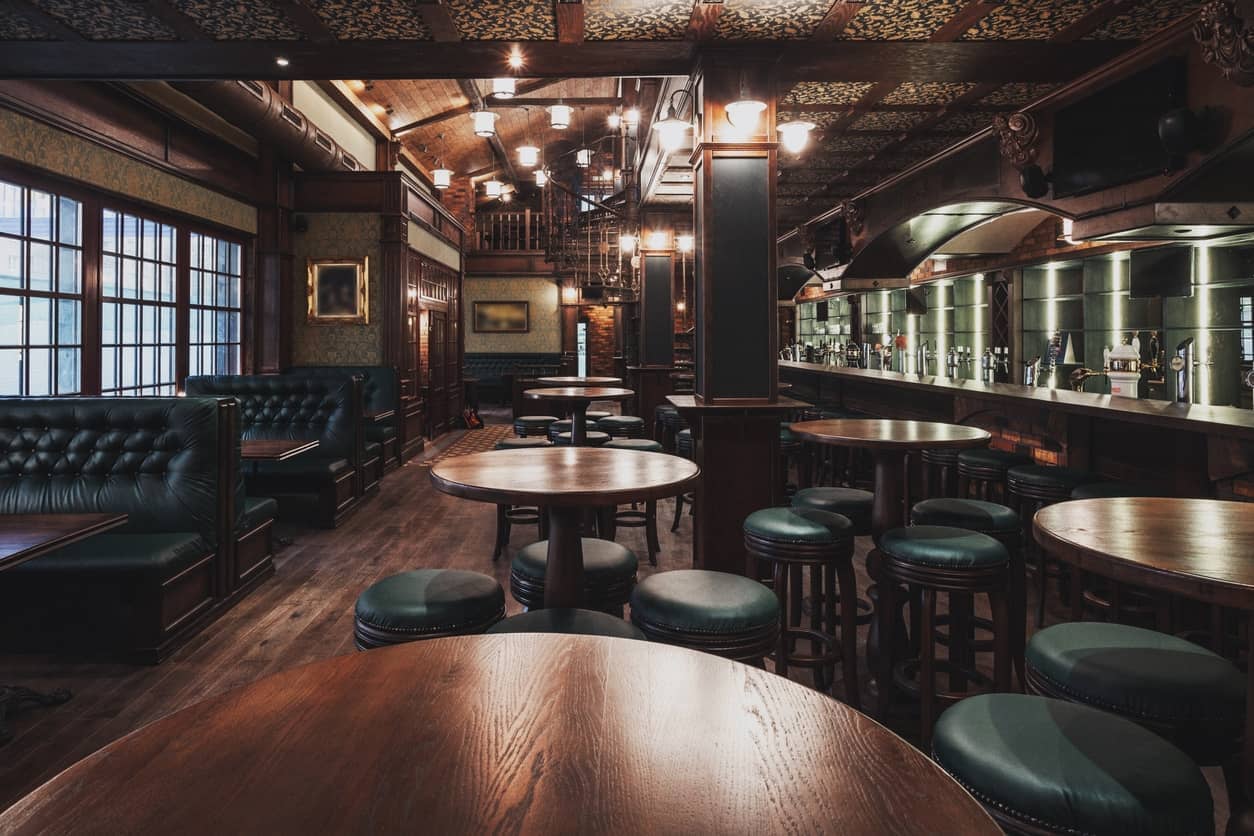As government considers whether to lock us down once again, should it put economic support for businesses affected back on the table? The combination of Plan B and Boris Johnson’s insistence that we modify our social behaviour has led to empty cinemas, ghost trains, cancelled gigs and ‘postponed’ Christmas parties. Just as the economy was getting back on its feet, the unofficial guidance to avoid social events is knee-capping it once again, forcing the Chancellor to not only drop his December plans but to announce yet more taxpayer-funded business compensation.
So far he’s fallen down on the side of more support, though nothing (yet) like last time. Businesses in England that fall into either the hospitality or leisure sector can now receive a one-off grant worth up to £6,000, while government will cover the cost of Statutory Sick Pay for small and medium size businesses.
This may not be enough to please the embattled hospitality industry, which has been pleading for additional support as the Christmas period swiftly becomes a ‘disaster area‘. Pantheon Macroeconomics has warned output in the accommodation and food services sector will fall by 15 per cent month-to-month in December. As the Bishop Auckland MP Dehenna Davison yesterday commented: ‘In the last two days, I’ve had pubs and restaurants contact me asking if they should place food and drinks orders. I’ve had emails from people asking if they should postpone their wedding for the fifth time…we really need some certainty.’
The real issue might be the ongoing expectation of financial support
Davison is right that the government’s indecision has left the hospitality industry in a precarious position. The ‘irreversible’ roadmap earlier this year may have been excruciatingly slow, but it did at least give offer companies the ability to plan – when to bring staff back in, when to order stock, and when to make important spending decisions. They have no such luxury now.
But the real issue might be the ongoing expectation of financial support. If Omicron has taught us anything, it’s that the Covid era is impossibly uncertain. If variants keep escaping prior immunity every six months or so, the government may impose restrictions for years to come to compensate for capacity failings in the NHS. Today the Treasury has issued £1bn of support, but it cannot dial up and down subsidised loans and furlough in lockstep with lockdown perpetually – at least not without bankrupting the country.
Furlough was probably the right medicine at the start of the pandemic. Back in April last year the Office for Budget Responsibility was predicting a peak of 10 per cent unemployment, but it never reached more than 5.2 per cent. The US, with no national furlough programme, hit 14.8 per cent unemployment. While in Germany the Kurzarbeit furlough scheme kept the rate down to a maximum of 6.4 per cent.
But in the UK the furlough went on for too long, came with a £70 billion price tag and was subject to fraud. It also subsidised employees outside of the hardest hit sectors, many of whom would never would have lost their jobs in its absence. Further, the scheme trapped workers in artificial employment and prevented zombie businesses from going to the wall.
In doing so, it halted the Darwinian process of creative destruction which sees businesses with new ideas capture the market from businesses which are stuck in their ways. This is how entrepreneurship drives economic growth and, ultimately, improves living standards.
If a precedent of regular winter lockdowns is set, then the long-standing Kurzarbeit could be a good model to emulate – though it’s still too early to say how well it performed in the pandemic. The social insurance programme, which is permanently in place, allows employers to reduce their employees’ working hours, with the government providing an income ‘replacement rate’ of 60 per cent. To avoid keeping workers in jobs that eventually need to disappear, the employer has to pay 80 per cent of the total social security contributions owed on the reduced working hours. It kicks in automatically, which means businesses don’t need to lobby the government for support either. Kurzarbeit wouldn’t be cheap, but it would be cheaper than permanent furlough.
If we must learn to live with Covid, potentially adjusting our behaviour annually to slow the spread of new variants, then businesses must too. The transition will be painful, but we may gradually move towards more smaller pop-up seasonal ventures, rather than 365-day restaurants, or see some restaurants do away with the storefront altogether. After all, how do hotels survive in the off-peak months? They collaborate, use their space for different purposes, run promotions and organise events.
For months, government has taken an excessively cautious and interventionist approach to both the pandemic and the economy. Perhaps, as we enter Covid’s third year, it’s time to finally stop.







Comments